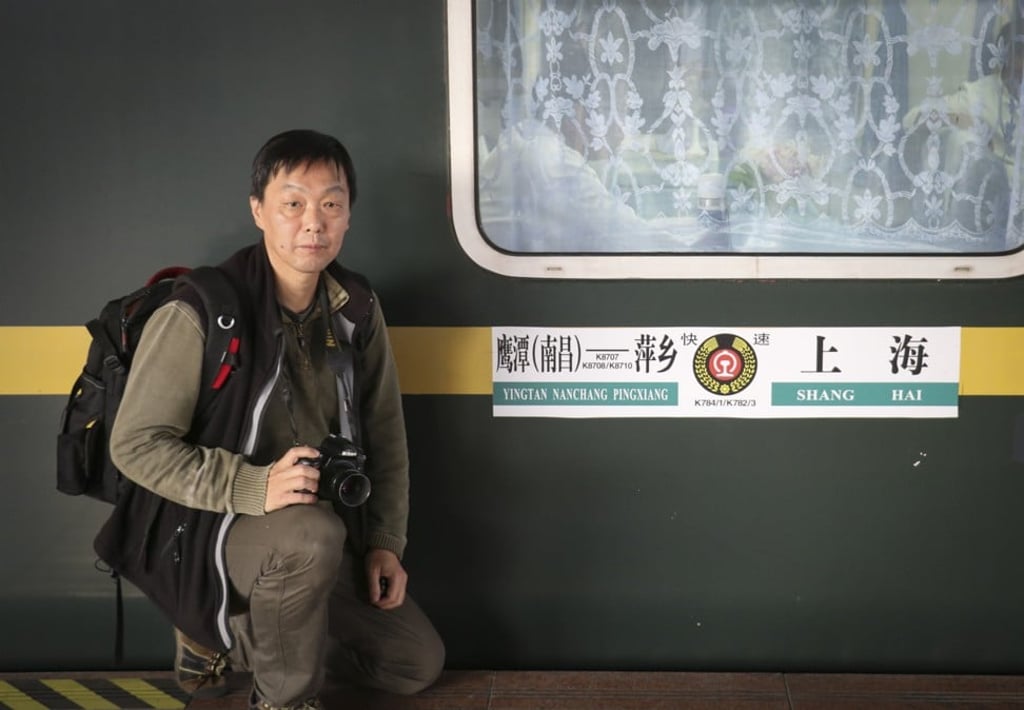Blue-collar photographer’s slice-of-life photos aboard China’s slow trains capture a side of country forgotten amid the fanfare over high-speed progress
- China’s high-speed trains are a gleaming testament to its rise, but in the shadows is another world, one documented by a hotel worker with a second-hand Nikon
- Qian Haifeng set out to see country on the cheap, and began photographing his fellow passengers. His images have won him national and international recognition

Edging the banks of mighty Lake Tai and bisected by the fabled Grand Canal, Wuxi in eastern China has been a favoured place of trade since antiquity. Wedged between economic heavyweights Suzhou and Changzhou in Jiangsu province, the manufacturing hub has awoken from its post-socialist slumber and is now known more for software and solar panels than silk and rice.
The Wuxi Grand Hotel looms large over the city’s Binhu district, where, in a 20th-floor Japanese restaurant, appears the hotel’s long-serving electrician, Qian Haifeng. The 52-year-old is sporting brown worker overalls and big black boots. He is a little hard of hearing but a boyish energy projects the character of someone much younger.
“Sorry to bring you all the way up here,” Qian says in Mandarin lilted with the local Jiangnan dialect. “I usually eat in cheap noodle shops on the street but I’m not allowed to leave the hotel while on duty. At least up here you get a good view of Wuxi.”
He is right, and through the smog appear relics of several epochs: the Grand Canal, completed in the early seventh century, during the Sui dynasty; some soon-to-be-demolished Mao-era tenement blocks; and in distant Nanchang district, the glass totems of China’s economic rise, dominated by the Hyatt Regency hotel.

“The Grand Hotel was the tallest building in Wuxi when I came to work here in 1988,” says Qian. “It was a prestigious place to work in the 1990s. I was trained on the job and my salary was 1,000 yuan when the average was just 400. In 1995, my daughter was born and I was rich enough to buy a camera, so I could photograph her growing up.”
The good times were not to last, however. In 2001, aged just 34, Qian was diagnosed with cancer of the nose and throat: “I had to undergo serious treatment and then, year after year, go back to the hospital for check-ups. I didn’t get the all-clear until 2006, and to this day, if I eat spicy food I have trouble swallowing.” As if to prove his point he periodically rubs his nose with a serviette and coughs lightly.
